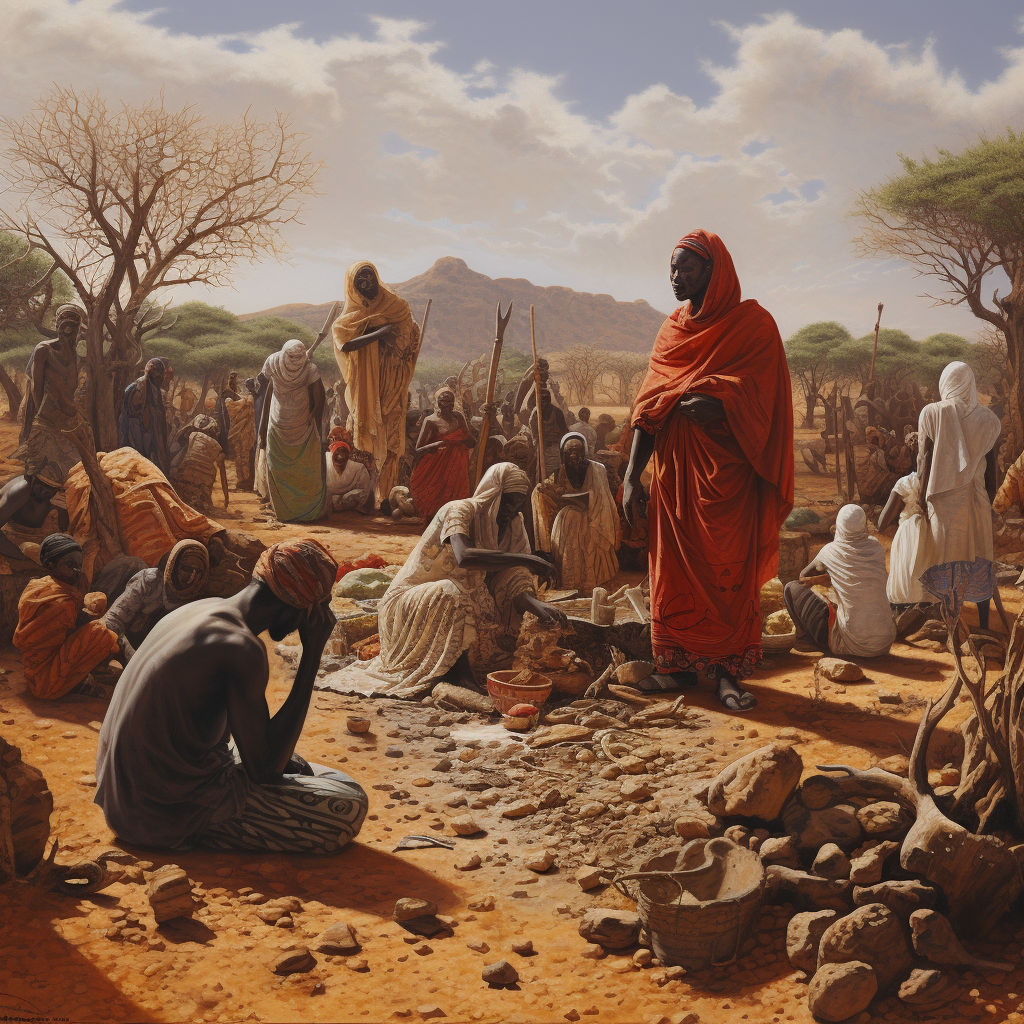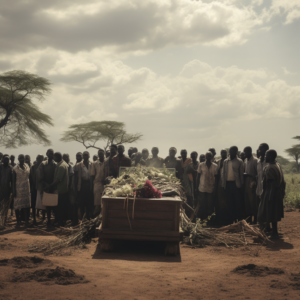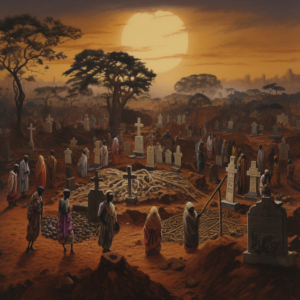
Burying the Dead – Seventh Corporal Work of Mercy
The Works of Mercy through the eyes of a biblical scholar
Biblical scholar and friend Carlo Miglietta accompanies us in our daily reflection on the Works of Mercy. At this time, Spazio Spadoni is preparing to welcome brothers and sisters from many parts of the world to build together tools to spread the works.
The seventh Work of Corporal Mercy is “burying the dead”.

The biblical scholar points out to us that he who performs this work is similar to:
- Abraham, who buries Sarah (Gn 23:6); Joseph, who buries his father Jacob (Gn 50:7, 14); Tobi, who buries the dead at the risk of his own life, and for this he has to flee and his possessions are confiscated by King Sennacherib (Tob 1:17-20); and who then, having returned home, fearlessly resumes this work of mercy, to the amazement and derision of his neighbours (Tb 2:1-9).
- The woman, a sinner according to Lk 7:37, anoints Jesus with perfumed oil in Bethany, and Jesus exclaims: “Pouring this oil on my body, he did it in view of my burial” (Mt 26:6-16).
- Joseph of Arimathea, who gave Jesus his own tomb, and who had the courage to present himself to Pilate and ask him for the body of Jesus (Mt 27:57-60).
- Nicodemus, who brought a mixture of a hundred pounds of aromatics to anoint the body of Jesus (Jn 19:38-42).
The biblical scholar also reminds us that he who buries the dead hears the Word of God
Below some excerpts:
- “Son, shed tears on the dead man, and as one who suffers cruelly begin the lament; then bury his body according to his rite and do not neglect his grave” (Sir 38:16).
- “Their bodies were buried in peace” (Sir 44:14).
- “The body is not for uncleanness, but for the Lord, and the Lord is for the body” (1 Cor 6:13).
- “Know ye not that your bodies are members of Christ?” (1 Cor 6:15; 12:27; Eph 5:30).
- “Do you not know that your bodies are temples of the Holy Spirit who is in you and whom you have from God…? Glorify therefore God in your body!” (1 Cor 6:19-20).
- “We wait…for the redemption of our body” (Rom 8:23).
- “It is necessary for this corruptible body to be clothed with incorruption and this mortal body to be clothed with immortality” (1 Cor 15:53).
- “For we know that when this body, our habitation on earth, is disposed of, we shall receive a habitation from God, an eternal dwelling, in heaven” (2 Cor 5:1).
- “Jesus will transfigure our wretched body to conform it to his glorious body” (Phil 3:21).
The biblical scholar leaves us at the conclusion of this work with a provocation, a question: do we know how to be “fishers of men” (Mk 1:7), identifying those who care for the bodies of the dead and proclaiming the beatitude of mercy that reads “Blessed are the merciful” (Mt 5:7)?
Burial in Africa

While in Western culture the subject of death is almost taboo, in African culture it is in close communion with life. God is life and as such, life is eternal.
From ancient times, it was thought that the dead could come back to frighten the living through their souls, which remained alive even after death; this thought has always ensured that there was a special care for a dead body and its dignified burial. There is a common proverb throughout Africa ‘When an old man dies, it is like burning a library’ to emphasise the role of the elderly person, not a burden nor an outcast but a rich source of knowledge due to their long life experience, a sage. That is why their death and burial are accompanied by a longer mourning period lasting several days and a great ceremony in which tales are told, dances are performed and the same food and drink that the deceased used to consume in life is offered, all in their memory.
Collective worship of the dead becomes a key moment when relatives, family and friends come together to reflect and make important decisions. Each person desires a space to express his or her memory and personal farewell. The loss of a loved one, in Africa, is not only associated with grief and mourning, but also with the joy of being able to participate in traditional and religious services that connect the living with the dearly departed; it becomes almost a celebration. In Africa, the mourning and burial of a deceased person has a very significant cost, and all of it is borne by his or her family; but even and especially in this case, one experiences the solidarity and closeness of the people of the community.
Learn more about the HIC SUM project
Bibliography
![]() Carlo Miglietta – Le Opere di Misericordia
Carlo Miglietta – Le Opere di Misericordia
 Carlo Miglietta – Works of Mercy
Carlo Miglietta – Works of Mercy
 Carlo Miglietta – Oeuvres de miséricorde
Carlo Miglietta – Oeuvres de miséricorde
Read Also
Visiting Prisoners – Sixth Corporal Work of Mercy
Visiting the sick – Fifth Corporal Work of Mercy
Accommodation for pilgrims – Fourth Corporal Work of Mercy
Dressing the naked – Third Corporal Work of Mercy
Giving drink to the thirsty – Second Corporal Work of Mercy
Feeding the hungry – First Corporal Work of Mercy
The Works of Mercy from Brazil to Italy
